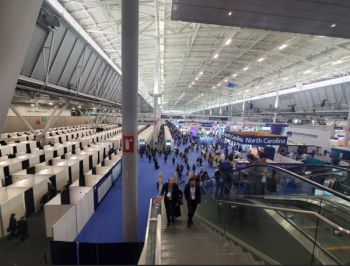
- BioPharm International-06-01-2021
- Volume 34
- Issue 6
From the Chairman: Technology Advances Foster New Therapies
Innovation drives the development of emerging drug modalities.
In the past 16 months, the public gained some insight into the complexities of drug development. The rapid development and emergency approval of the Pfizer/BioNTech and Moderna COVID-19 messenger RNA (mRNA) vaccines should not, however, give the impression that these tasks were easy.
These innovations were built on years of research, with setbacks and successes. The development of new drug modalities, such as mRNA vaccines, push researchers to develop bespoke technologies, methods, and processes to meet scientific, safety, regulatory, characterization, and manufacturing requirements for innovative treatments.
The cover story for this issue examines how researchers developing emerging biotherapies must address unique challenges associated with cell therapies, intranasal vaccine delivery, and virus-like particles. The solutions to these innovation hurdles will have implications for the success of future new biotherapeutic modalities and can set the stage for future life-saving treatments.
Scaling up the manufacturing of mRNA vaccines has also proved challenging, including demand for lipid nanoparticles exceeding the available manufacturing capacity. Contract manufacturers, drug companies, and excipient suppliers have boosted production to fill the gap, as discussed in a development feature in this issue.
More productive processing
Technology innovations can offer promising alternatives to problematic bioprocessing functions; in this issue, experts discuss emerging technologies for all drug production phases.
The upstream processing feature explores the advantages of cell-free expression systems and the potential benefits of less waste upstream and less bioburden downstream.
Meanwhile, recent technological advancements that aim to increase the efficiency and productivity of the separation and purification steps in downstream processing are explored also.
As processes become more complex, digital technologies, in the form of sensors, process monitoring, and data analysis systems, are more widely adopted throughout the manufacturing cycle. Experts share implementation insights for new and legacy facilities in the manufacturing section. And in a peer-reviewed paper, experts describe how in a close cell-handling system, lower relative humidity and physiologic temperatures can reduce the need for disinfectants.
About the author
Mike Hennessy, Sr. is chairman and founder of MJH Life Sciences™.
Article Details
BioPharm International
Vol. 34, No. 6
June 2021
Page: 4
Citation
When referring to this article, please cite it as M. Hennessy, “Technology Advances Foster New Therapies,” BioPharm International 34 (6) 2021.
Articles in this issue
over 4 years ago
Next-Gen Therapies Drive Development Technologiesover 4 years ago
Meeting the Demand for Lipid Excipientsover 4 years ago
Cell-free Expression Systems Pose Cell Culture Alternativeover 4 years ago
Innovative Chromatography Resins Can Improve Purity and Qualityover 4 years ago
Setting Up Bioprocessing Systems for Digital Transformationover 4 years ago
Innovations Meet Growing Demand for Prefilled Syringesover 4 years ago
Development Strategies for Cell and Gene Therapy Methodsover 4 years ago
Developing a Method for Success through Partnershipsover 4 years ago
Pandemic Highlights Need for Advanced Pharma ManufacturingNewsletter
Stay at the forefront of biopharmaceutical innovation—subscribe to BioPharm International for expert insights on drug development, manufacturing, compliance, and more.




